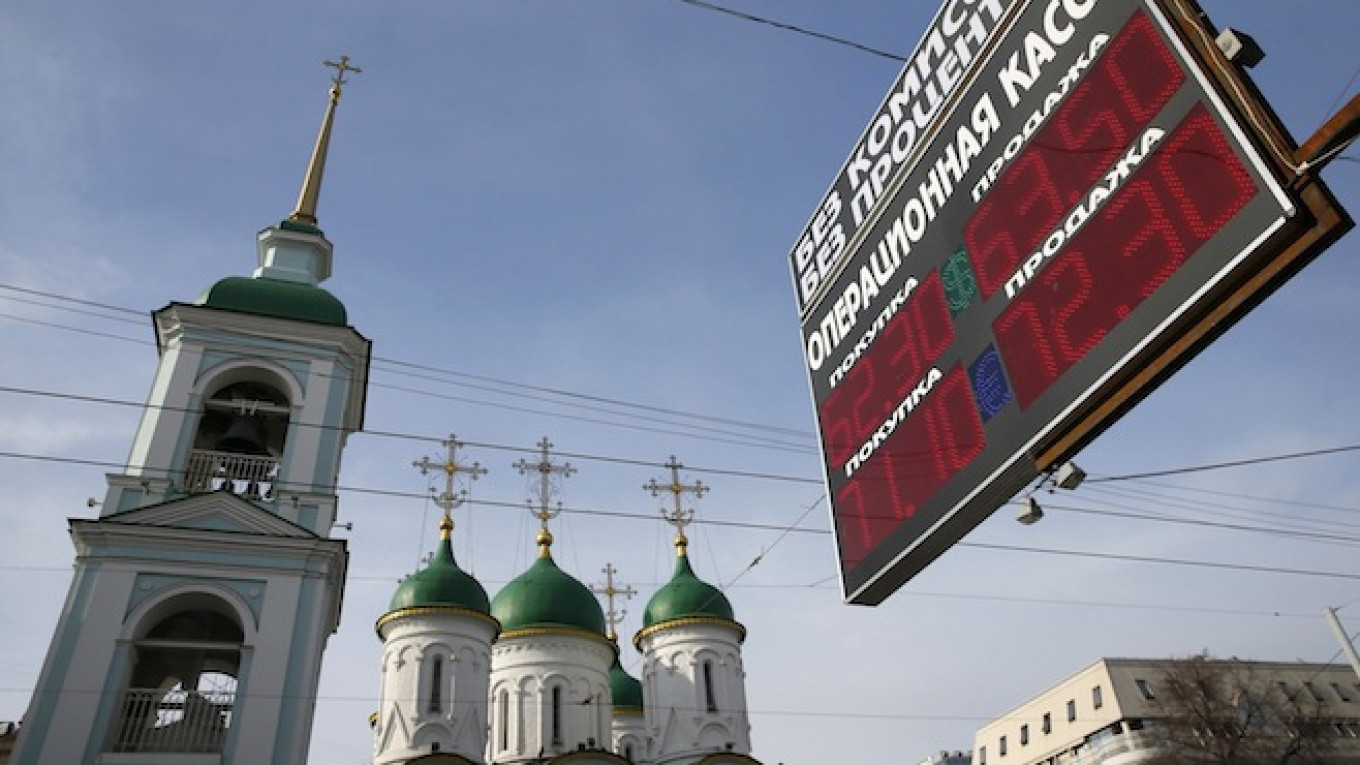Russia's banking system may see its bad loans rise to 17-23 percent of its loan portfolio in 2015 from around 8 percent last year, Standard & Poor's said on Thursday, underlining the impact of an economic crisis on the sector.
Banks have suffered a spike in bad loans and lower profits because of the crisis, deepened by Western sanctions over Moscow's role in the Ukraine conflict and lower oil prices.
Russia has been forced to support many with capital injections and other measures after the country's largest lenders have been all but cut off from global financial markets.
S&P said according to its base scenario, Russian banks may be forced to set aside around 2.5 trillion rubles ($41 billion) to cover potential bad loans. Under its negative scenario, bad loans may reach 35-40 percent, S&P said.
Sergei Voronenko, an S&P analyst, told a news conference that profit for the Russian banking sector was seen at close to zero this year, with the bulk of banks posting a loss.
In its report, the ratings agency said the key factor for stability in the banking sector would be financial support from the state, which could reach up to 15 percent of gross domestic product. Some 2.3 percent would be needed as capital injections, S&P said.
The government approved injecting up to 1 trillion rubles of OFZ treasury bonds issued late last year into banks including VTB, Gazprombank and Rosselkhozbank, all state-controlled and under sanctions.
VTB and Gazprombank are also expected to receive money from the National Wealth Fund, a fund originally intended to support the pension system, of over 200 billion rubles.
Leading bank Sberbank could also attract a subordinated loan of up to 600 billion rubles from the central bank, its main shareholder, or extend an existing loan from the regulator.
Sberbank Chief Executive German Gref said last month that Russian banks would need to create about 3 trillion rubles of provisions this year should oil prices average around $45 a barrel.
A Message from The Moscow Times:
Dear readers,
We are facing unprecedented challenges. Russia's Prosecutor General's Office has designated The Moscow Times as an "undesirable" organization, criminalizing our work and putting our staff at risk of prosecution. This follows our earlier unjust labeling as a "foreign agent."
These actions are direct attempts to silence independent journalism in Russia. The authorities claim our work "discredits the decisions of the Russian leadership." We see things differently: we strive to provide accurate, unbiased reporting on Russia.
We, the journalists of The Moscow Times, refuse to be silenced. But to continue our work, we need your help.
Your support, no matter how small, makes a world of difference. If you can, please support us monthly starting from just $2. It's quick to set up, and every contribution makes a significant impact.
By supporting The Moscow Times, you're defending open, independent journalism in the face of repression. Thank you for standing with us.
Remind me later.


